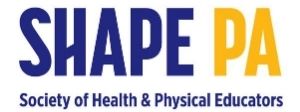Background:
State Senator (Killion) introduced a bill (SB521) for hands-only CPR instruction for high school students (PA State Rep R Lee James also introduced a similar bill, HB1097) that passed in the Senate and House. It is important to note that these bills do not state that CPR Certification is mandatory.
Summary:
- High School students should have CPR information/knowledge in their HS health curriculum
- CPR is a component of the new 10th Grade Core Concepts within the PA Health Standards
- PA law DOES NOT state that certification is needed, rather, it is a local decision if schools want to offer certification
- Health and Physical Educators must be trained and certified (Red Cross or American Heart Association) if they offer a CPR certification to students.
- Schools also have the option of bringing in/paying the Red Cross, Heart Association, etc. under the supervision of a certified H/PE teacher.
Benefits of CPR in High School Health Curriculum:
- Career Readiness
- Resume building
- Supports Well-Rounded Education
Funding:
If you are certifying students in CPR, this falls under ESSA- Career Education which contributes to a well-rounded education. As a result, districts may be able to access federal funds (Title II) to cover training costs affiliated with CPR Instructor training. Talk to your district today about including this in your PA ESSA Comprehensive State Plan to access funds!
